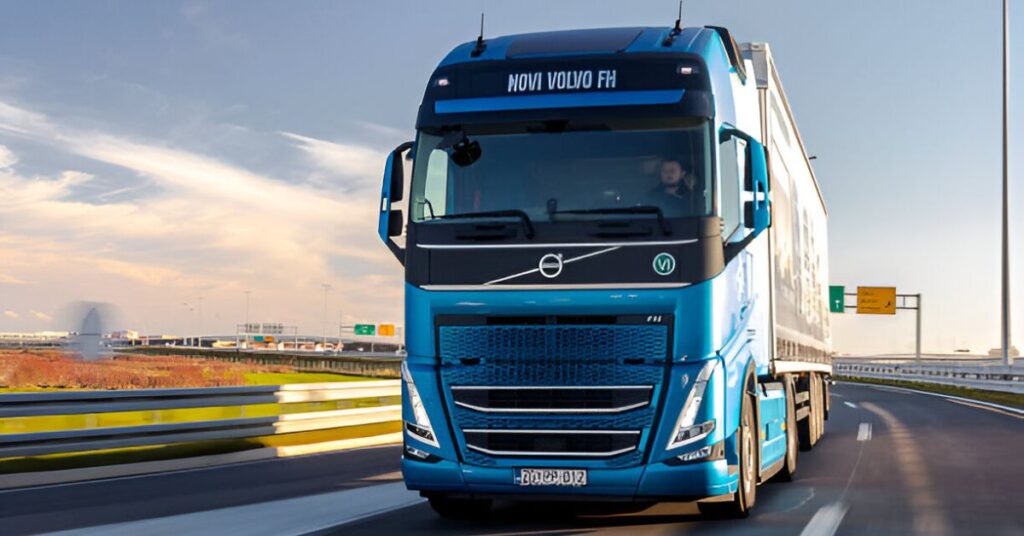We live in a pivotal moment in the history of our planet. Hazardous waste is rapidly flooding our ecosystem, making the world a less welcoming for humans. Now more than ever, sustainability needs to be instilled in every aspect of our existence to slow down and reverse the damage humanity has meted out across the globe. One business embodying this endeavour is Volvo. Sustainability is central to the company’s daily operations and innovation processes. Let’s look at how Volvo practices sustainability in its manufacturing activities, focusing on Volvo truck parts.
Volvo’s Vision: Pioneering Sustainable Transport
Volvo is guided by a vision to become the leading charge in sustainable transport. It is dedicated at all levels of its operations to minimising environmental impact by significantly reducing its carbon footprint and emissions. Volvo produces parts that incorporate recycled materials and derive products from sustainable practices. Their truck parts are renowned for their performance, durability, and longevity. The company uses out-of-use equipment and remanufactures parts such as engines and gearboxes by reclaiming materials like iron for recycling and reuse. Their efforts to manufacture truck parts from reclaimed items form part of the journey towards sustainability.
Eco-Engineering: Innovative Materials for Green Truck Parts
Over the years, Volvo has been at the forefront of advancing engine technology to improve fuel efficiency. This goes hand-in-hand with reduced carbon emissions, as modern engines consume less fuel and are a solid step in the race toward sustainability. More fuel-efficient engines also have the added advantage of giving drivers a smoother ride and are less susceptible to wear and tear. Therefore, Volvo trucks can run on the roads for a longer time without the need for traded-ins or upgrades.
Electric Avenue: The Future of Trucks is Electric
Sustainability has spurred Volvo to innovate electric and hybrid solutions for its trucks. The company has been included in the modern-day quest for electric vehicles and boasts a formidable array of trucks equally as good as its combustion engine competitors. Its electric trucks are great for all trucking operations, such as long-distance hauling and handling large load capacities. They can also be used for waste collection deliveries and construction transportation. The trucks are quiet, minimising noise pollution. Hybrid options are excellent for those not yet ready to commit to the Volvo electric fleets fully. They offer drivers the best of both worlds and can supplement the pros of the electric truck technology with an internal combustion engine.
Smart Systems: Turbocharging Operational Efficiency
Another way Volvo promotes sustainability is by using smart systems that increase telematics and connectivity performance. Volvo trucks with smart systems can optimise travel routes to conserve fuel, which is a big win for the environment. The smart systems can also perform advanced diagnostics on problems that crop up in the truck’s operations, warning drivers in advance and flagging overdue maintenance requirements.
Green Manufacturing: Sustainable Production Practices
The concepts of a circular economy are paramount at Volvo, ensuring that waste is minimised and resources are reused and repurposed to reduce wastage. End-of-life truck parts are assessed and broken down into their base materials, which are then fed back into the manufacturing process, keeping waste to a minimum. Volvo regularly engages in industry partnerships for a greener future, such as cooperating with suppliers to provide low-carbon inputs that fit neatly into the company’s sustainability drive.
The world is our only home, and sustainability safeguards the environment from further degradation. Volvo’s truck parts are a feather in the cap of sustainable efforts. The guiding principles of eco-friendliness have served to fuel innovation in the company’s processes and result in high-quality products that are good for the environment,








1 thought on “Exploring How Sustainability Fuels Innovation in Transportation with Volvo Truck Parts”